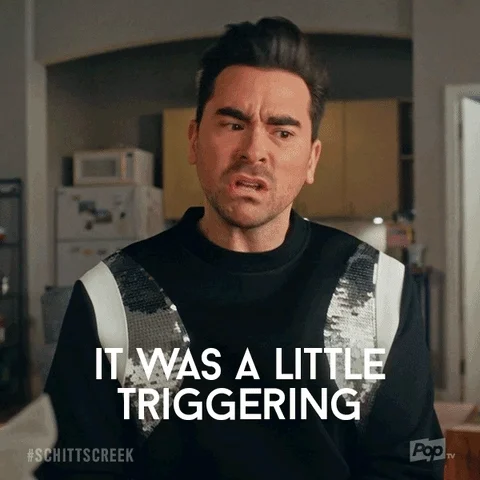Do you:
😨 fear getting too close to your partner?
😱 have an extreme fear of rejection?
😰 have a hard time seeking help?
😞 use unhealthy ways to cope?
🙍 feel unworthy of love or not good enough?

If this sounds like you, you might have grown up with a disorganized attachment style.
💡Read this Byte to determine if you have a disorganized attachment style.

According to Dr. Lisa Firestone,
A person who grew up with a disorganized attachment often won’t learn healthy ways to self-soothe. They may have trouble socially or struggle in using others to co-regulate their emotions.
Learn some healthy ways to cope and improve your relationships!
Tip #1: Enhance self-awareness
Self-awareness begins with identifying and understanding your triggersas signals to underlying emotions.
✅ You can practice getting in touch with your feelings by:
✒️ grabbing a journal and documenting moments when emotions feel "big" in your body.
❓asking yourself, "What triggering events in my relationships cause anxiety or fear of rejection?"
📖 applying this self-awareness worksheet developed by Dr. Becker-Phelps.

Some examples of situations that can trigger negative emotions:
▶️ Kris's boyfriend forgets their anniversary. This triggers feelings of anger, anxiety, and sadness: "He doesn't love me, we should break up."

▶️ Sunil's partner came home from work at a later time than usual. This triggers feelings of fear and panic: "They must be cheating on me and planning to leave!"

▶️ Julie's relationship is going well. Her partner suggests moving into their place. This triggers feelings of anxiety and tenseness: "They want me to depend on them and they want to control me."

⚡Knowledge check!
Scenario: Your partner is on a week-long work trip and they haven't texted you since they left. You start to feel anxious.

Quiz
What thoughts and responses may come up in a disorganized attachment style? Choose all options that apply.
Tip #2 Communicate your needs
When you feel "big" emotions, it might be challenging to communicate your needs and you might have a hard time asking for help.
 Photo by Aleksandra Sapozhnikova on Unsplash
Photo by Aleksandra Sapozhnikova on Unsplash⏪ How do you communicate your feelings more clearly? Let's replay the potential triggering events from above:
👉 When Kris's boyfriend forgets their anniversary...
 ❌ INSTEAD OF SAYING: "You don't love me, we should break up."
❌ INSTEAD OF SAYING: "You don't love me, we should break up."
✅ SAY: "Forgetting the anniversary makes me feel upset because it's important to celebrate our relationship. I know you didn't intend to forget but can we put this event on our calendar so we don't forget next time?"
👉 When Sunil's partner comes home from work at a later time than usual...
 ❌ INSTEAD OF SAYING: "You came home late, you must be cheating on me."
❌ INSTEAD OF SAYING: "You came home late, you must be cheating on me."
✅ SAY: "I feel anxious when you come home late. Next time, can you text me and let me know when you'll be late?"
👉 When Julie's partner suggests moving into their place...
 ❌ INSTEAD OF SAYING: "You want me to move into your place, you must want to dominate and control me. You want me to depend on you."
❌ INSTEAD OF SAYING: "You want me to move into your place, you must want to dominate and control me. You want me to depend on you."
✅ SAY: "While I'm very happy for us, moving in together is a big step that makes me feel anxious and scared. Can I take some more time to process and think about it?"
⚡Knowledge check!
Your partner is on a week-long trip and they haven't texted you. You're feeling anxious and upset.

Quiz
What are effective ways to communicate your feelings? Choose all options that apply.
Tip #3 Recognize Inner Critic
Your inner voice may tell you:
"I'm not good enough."
"I must be doing something wrong, that's why my partner doesn't love me."
"I'm a loser and I don't deserve this relationship."

✅ Stand up to your inner critic by:
recognizing some of the common negative thought patterns.
practicing self-compassion and using a kinder voice to challenge your inner critic.
Take Action

Get started!
Building more secure relationships by practicing the right coping skills:
Your feedback matters to us.
This Byte helped me better understand the topic.
